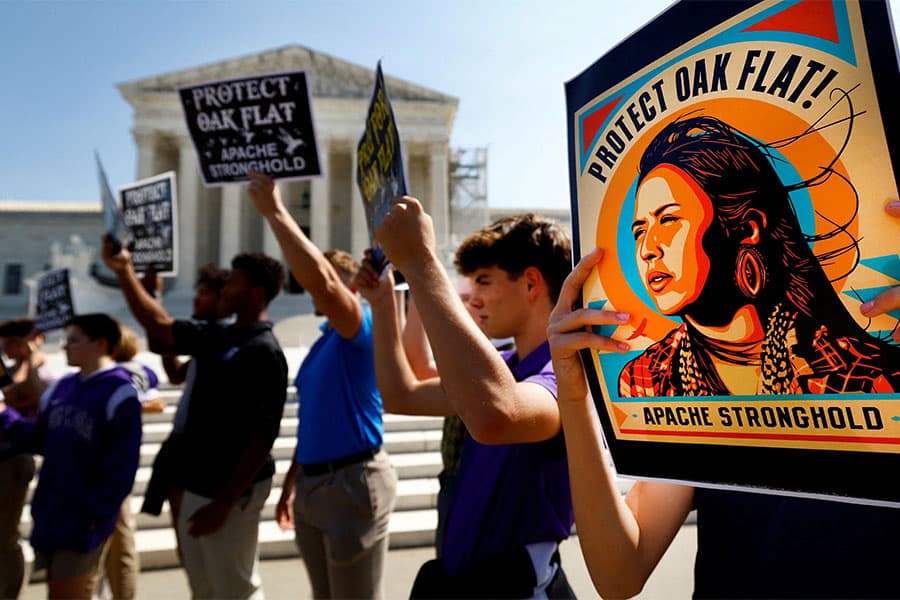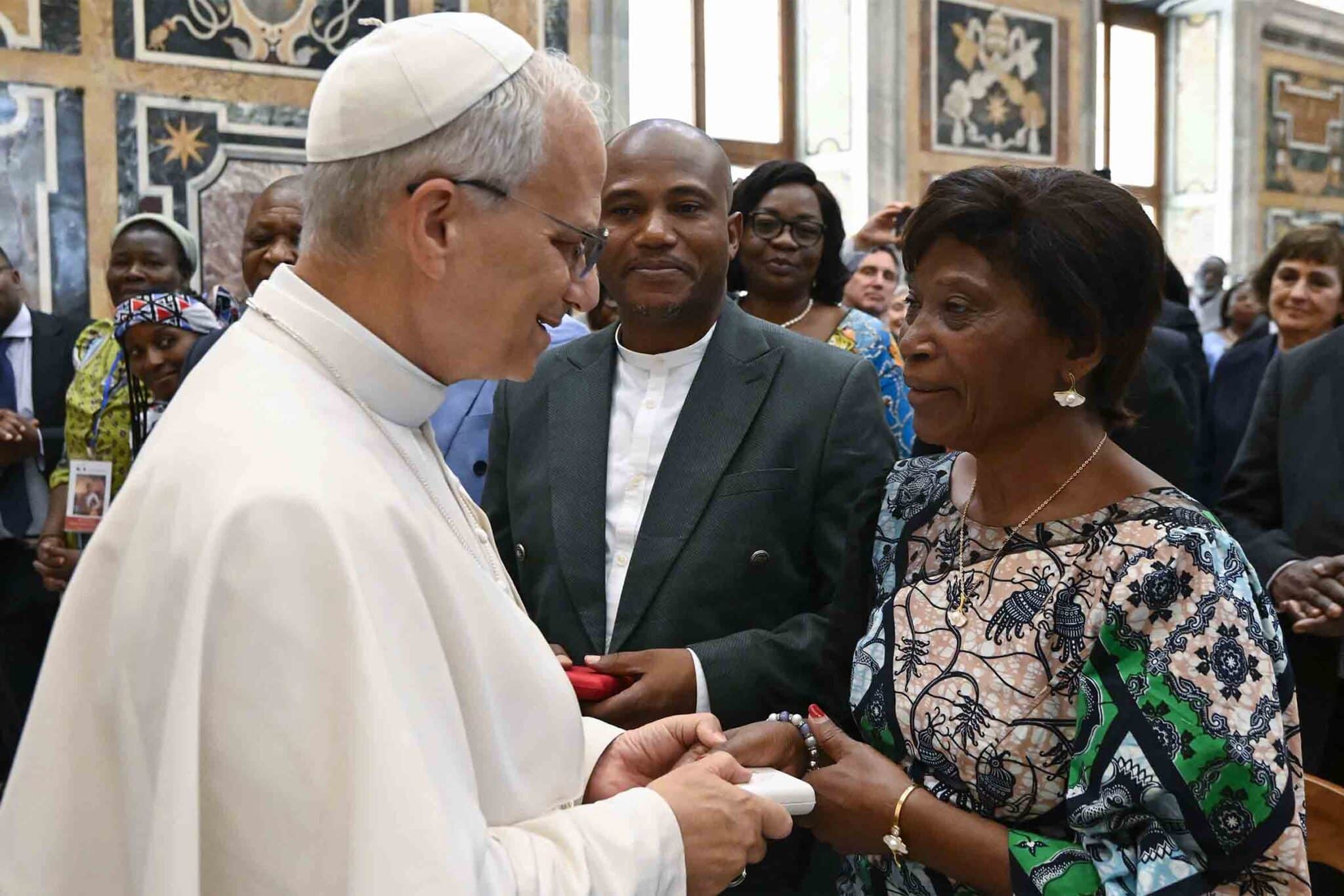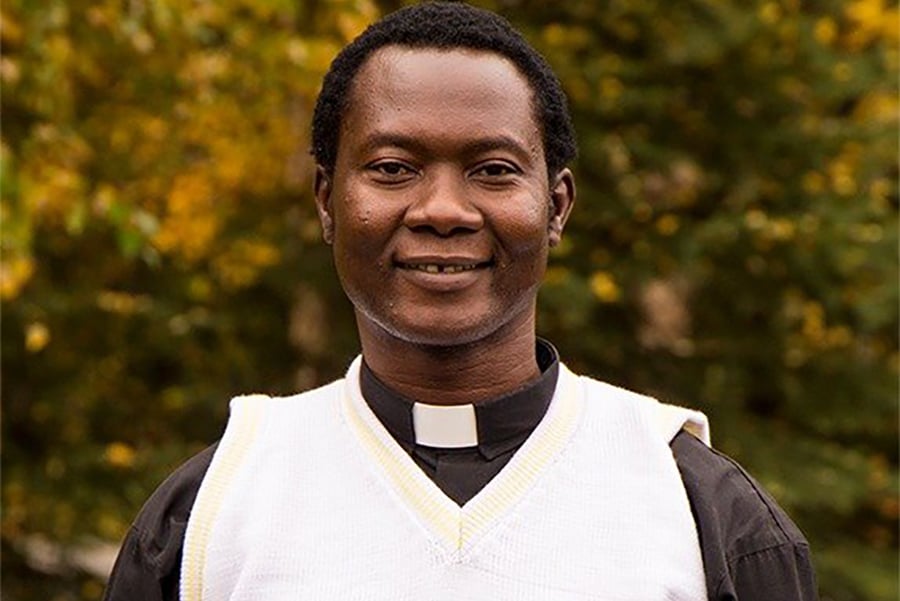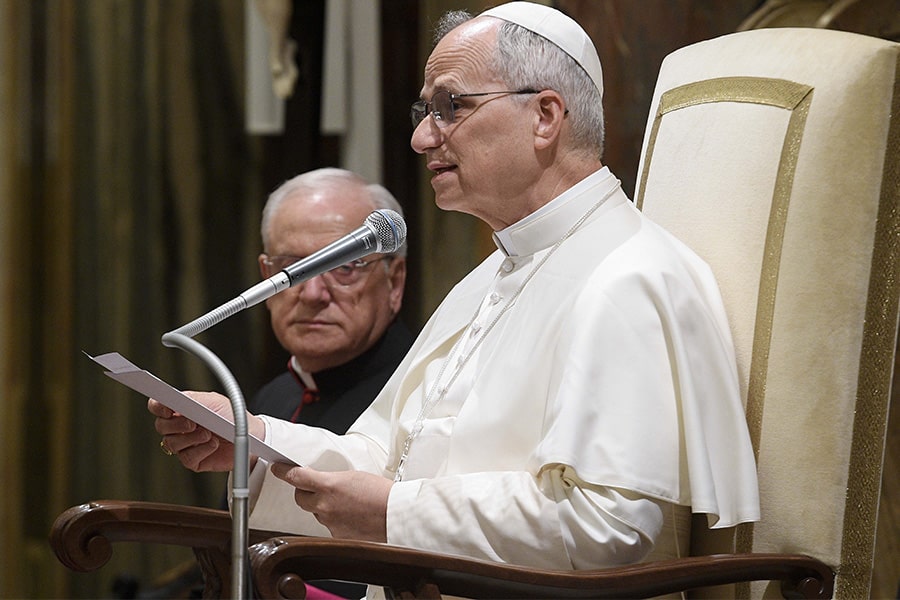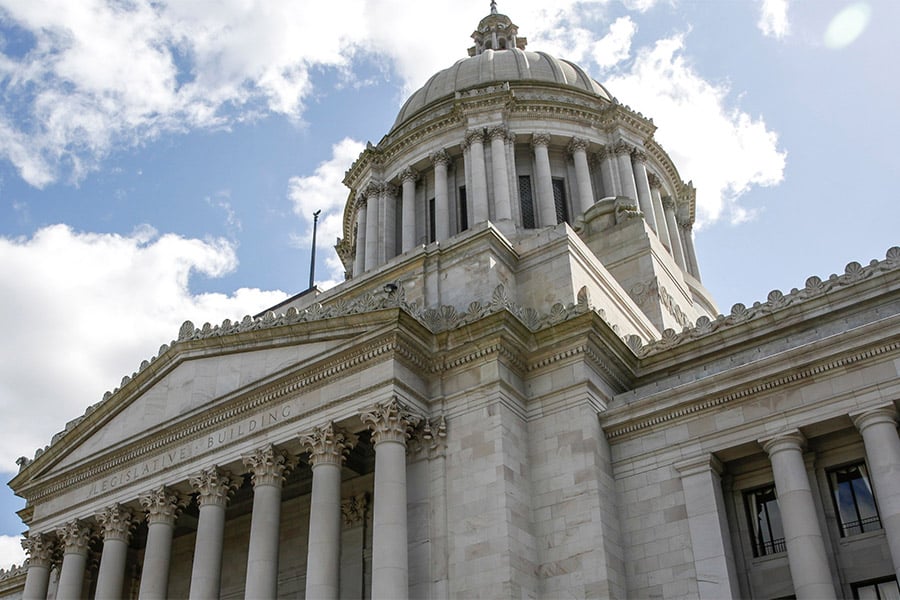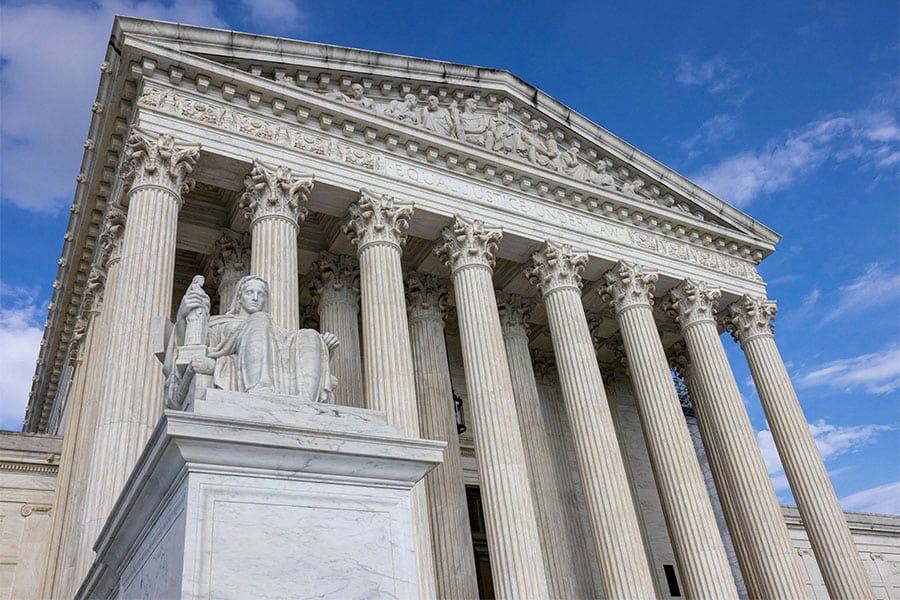KRAKOW, Poland (OSV News) — “God did not create Auschwitz, God created man,” said Cardinal Grzegorz Rys of Lodz after the Jan. 27 commemoration of the 80th anniversary of the liberation of the German Nazis’ biggest death camp: Auschwitz-Birkenau in Oswiecim, Poland.
“God suffered a great deal in every single person who was here. God suffered a great deal in this place,” Cardinal Rys added.
An interreligious prayer by representatives of Judaism, Christian churches — Catholic, Orthodox and Protestant — and Islam, was part of a commemorative service on the premises of Auschwitz-Birkenau concentration camp. Cardinal Rys, Archbishop Guido Filipazzi, who is apostolic nuncio to Poland, and Bishop Roman Pindel of Bielsko-Zywiec recited the prayer in the name of Catholics. Chief Rabbi of Poland Michael Schudrich led the Jewish religious delegation and recited Psalm 42 together with other religions.
Germans built the camp in occupied Poland’s towns of Oswiecim and Brzezinka, exterminating around 1.1 million during its less than five years of existence.

The majority of victims that perished in gas chambers and other cruelly sophisticated forms of mass murder — around 1 million people — were Jews. The second most numerous group, some 70,000, was the Poles, and the third most numerous, about 21,000, the Roma and Sinti. About 15,000 Soviet POWs and some 12,000 prisoners of other ethnic backgrounds (including Czechs, Belorussians, Yugoslavians, French, Germans and Austrians) also died there.
On Jan. 27, 1945, the camp was liberated by the Soviet Red Army, a moment which 80 years later was commemorated by 56 camp survivors and over 50 heads of state, led by Polish President Andrzej Duda and including British King Charles III, Spanish King Felipe with Queen Latizia, royals from the Netherlands and Belgium, German President Frank Walter Steinmeier and Chancellor Olaf Scholz as well as Ukraine’s President Volodymyr Zelenskyy and French President Emmanuel Macron.
Polish Catholic Janina Iwanska was deported to Auschwitz in the fall of 1944, in the midst of the Warsaw Uprising, as a 14-year-old civilian dragged from her home as the building was set on fire by Germans in the Wola district. She did not know where she’s going in the cattle train wagon similar to the one displayed center stage during the commemoration ceremony. She soon learned from the abhorrent stench of crematories that she had arrived at the death camp.
She said only a handful of prisoners, 7,000, were there to witness the camp’s liberation, in 1945.
Speaking among Jewish survivors of the camp at the commemoration — Marian Turski, Tova Friedman and Leon Weintraub — Iwanska said, “When liberation came there were actually very few people in this camp.” She stressed in her remarks that “the Germans were so perfidious that even when the shots were heard that the front was approaching, they were still so stubborn that they decided to take the prisoners out of the camp and take them to other camps.”
At the end of January 1945, when some prisoners were already liberated, Iwanska first walked in the so-called “death march” led by Germans from Auschwitz to Wodzislaw Slaski. Then within days, in the middle of winter in an open coal wagon, with snow falling on the already exhausted prisoners, she was transported with other prisoners to Ravensbrück and later a sub-camp called Neustadt-Glewe.
She was liberated from Neustadt-Glewe on May 2, 1945.
In her testimony to the Warsaw Uprising Museum in 2013, Iwanska recalled that after the liberation, on her way back to Warsaw in a horse-drawn wagon, she was accompanied by a Catholic religious sister. The sister “decided that we are not going to any house, but first go to Czestochowa to thank the Blessed Mother for the fact that we survived all this,” Iwanska said, remembering a picture taken of 18 girls liberated from the camp who were standing or kneeling, like Iwanska, in front of the Jasna Góra national shrine of Our Lady of Czestochowa.

Jewish survivor Friedman said during the commemoration ceremony that throughout her life, she has celebrated Jan. 27, the date of the camp’s liberation, as her birthday. She recalled the horrors of the camp, where she was sent with her mother.
Friedman, now 86, was 5 when she arrived at the camp. She recalled “the cries of desperate women,” the “terrible stink” of the chimneys, and a moment as she was fidgeting during the three-hour camp roll call, with her mother silently begging with her eyes: “Wait a little longer, don’t cry,” as any sign of insubordination was being punished with a beating or imminent death.
Cardinal Rys, who is a professor of history, said after the ceremony: “For any historian, memory is something other than history. John Paul II also stressed … that without memory we are nothing and create nothing. It is our choice what we will remember and what we will want to carry on, a choice that involves the future and our ‘dignitas.'”
Cardinal Rys remembered what he was told once by Turski, a survivor who greeted the 3,000 guests at the Jan. 27 ceremony in the name of those who lived up to the moment.
“Turski once told me that when he arrived in a transport to Auschwitz and when he was leaving the train car, he lost his glasses,” the cardinal said. “That meant death, because without your glasses you can’t survive. You don’t know what’s going on around you. The people in his block bought him new glasses, offering their bread in exchange. They bought him glasses for their portions of bread and now he can be with us and speak in front of us because of that.”
Cardinal Rys stressed that as much as the testimony of St. Maximilian Kolbe and other heroic priests is important, Turski’s story proves that human solidarity and heroism was “not just a matter of priests,” but that in such gestures in the midst of the horrors of death camps “we are dealing … with something that goes beyond religion, beyond denomination.”
In the view of President Steinmeier, Germany’s responsibility arising from Nazi crimes never ends. “We in Germany, we do not forget,” said the German head of state on the sidelines of the event. “Remembrance knows no end and therefore neither does responsibility,” said Steinmeier.
In the run-up to the event, Chancellor Scholz on his part had called for special efforts to be made to create a culture of remembrance for the younger generation. “It must depress us how many young people in Germany hardly know anything about the Holocaust,” he told several newspapers.
In the shocking results of the Jewish Claims Conference Jan. 23 survey, One in five French adults say that they had not heard or weren’t sure if they had heard of the Shoah prior to taking the survey and 48 percent of Americans could not name a single concentration camp. On a more hopeful note, across all countries, an overwhelming majority of adults surveyed, 93 percent, believe it is important to continue teaching about the Holocaust.
Following the ceremony, King Charles III, as the first British monarch to visit the former camp, walked through the gate with the notorious “Arbeit macht frei” (“Work sets you free”) sign. As he was later guided through the museum, looking at the display cases filled with shoes, glasses, suitcases and items belonging to children, the British monarch sighed, saying, “It is unimaginable.”
Bringing up words of a post-war exiled Polish writer, Iwanska for her part warned: “If a Europe ruined by these follies is to avoid annihilation, its people must learn to better anticipate the consequences of actions and not to ignore those who can do so. … War and chaos can start anywhere. So there will be nowhere to flee.”
Polish television cameras showed Ukraine’s President Zelenskyy as her words reverberated through the crowd. Following the full scale invasion on Ukraine Feb. 24, 2022, a Russian delegation was not invited to attend the commemoration ceremony.
Read More Religious Freedom
Copyright © 2025 OSV News


